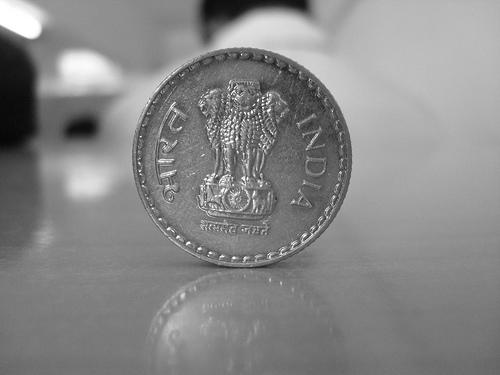
Indian banks seen to raise INR2.6 trillion to meet Basel III requirements
Additional capital needed by 2018, says Moody's.
Moody's said that Indian banks are preparing to implement the new Basel III requirements but in order to comply with the increased capital levels it will have to raise the staggering amount in half a decade, probably in phases.
Here's more from Moody's:
The higher capital requirement under Basel III will increase the pressure on Indian banks to raise capital and can lead to some changes in the industry, said Standard & Poor's Ratings Services today in a published report.
The report, titled "Indian Banks May Need INR2.6 Trillion Of Additional Capital By 2018 As They Strive To Meet Basel III Requirements," said banks there face a constant need to replenish capital at regular intervals to support their high growth. Starting April 1, 2013, Indian banks will begin to implement the new Basel III capital requirement, which will increase their capital requirement in phases.
We estimate Indian banks will require minimum additional capital of about Indian rupees (INR) 691 billion to meet the Reserve Bank of India's 8% requirement for the common equity tier 1 and capital conservation buffer ratio. The additional capital requirement could rise to INR2.6 trillion, given a tendency for banks to hold higher-than-minimum capital and the limited market for hybrid instruments in India.
Standard & Poor's believes the top-tier Indian banks are relatively well-placed to manage the transition toward Basel III and the demands of a high-growth banking system.
"The biggest challenge for the Indian banking sector is the state of Indian public finances," said Standard & Poor's credit analyst Deepali Seth. "The government's large fiscal deficit will limit its ability to inject capital into government-owned banks, which currently have less capital adequacy than the private and foreign banks operating in India."
Some smaller banks may face difficulties on the path to achieving Basel III; the extent will vary from bank to bank. For some weakly capitalized banks, the capital requirement could go up to two to three times their current market capitalization, Ms. Seth said.
"As banks simultaneously tap the capital market, some may struggle to raise the necessary capital. A few of the smaller banks could become potential takeover targets, which could result in consolidation in India's currently fragmented banking sector," she added.
The report is available to subscribers of RatingsDirect on the Global Credit Portal at www.globalcreditportal.com. If you are not a RatingsDirect subscriber, you may purchase a copy of the report by calling (1) 212-438-7280 or sending an e-mail to [email protected]. Ratings information can also be found on Standard & Poor's public Web site by using the Ratings search box located in the left column at www.standardandpoors.com. Members of the media may request a copy of this report by contacting the media representative provided.
























 Advertise
Advertise









